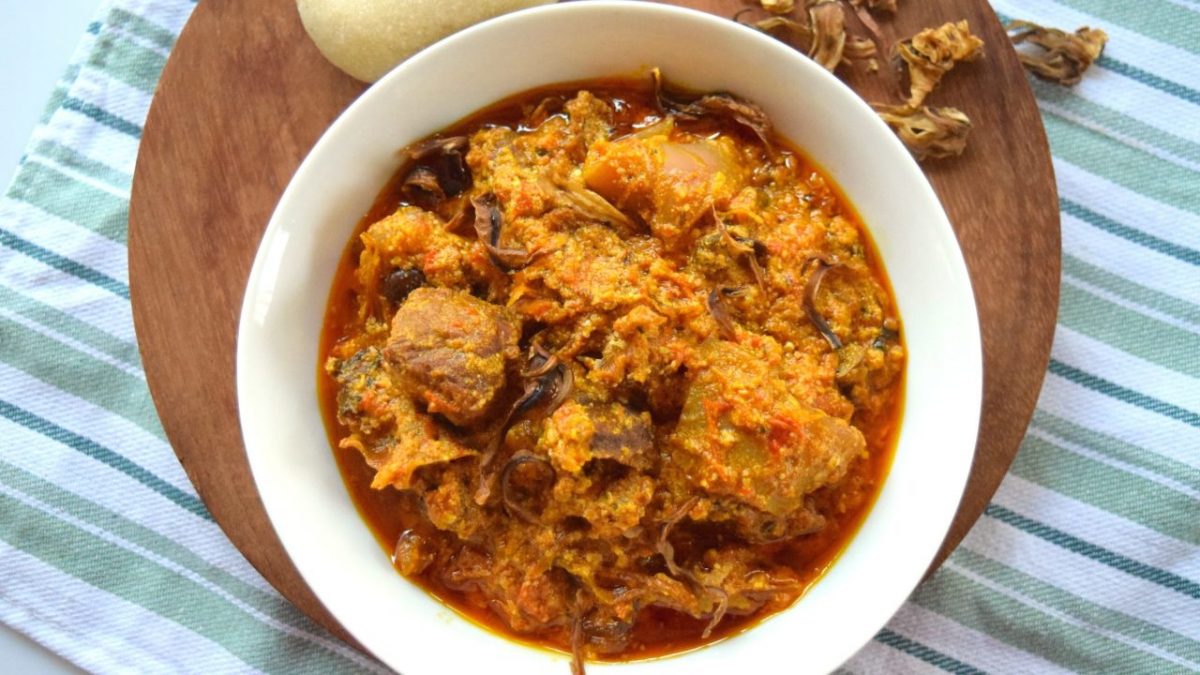
Recipe: How To Prepare A Sumptuous Pot Of Obe Ishapa (White Zobo Leaf Soup)
- Ayo AL
- June 5, 2020
- Food, How Tos
- how to make obe ishapa, obe ishapa recipe, obe ishapa tutorial
- 0 Comments

Obe Ishapa soup is a native food from Ekiti State in South Western Nigeria.
However, other tribes in Nigeria call it a different name.
It is made using Roselle (Hibiscus sabdariffa) or white zobo leaves and it’s great for the rainy season.
This Is The Simplest Recipe To Prepare A Tasty Pot Of Ibaba Soup
Here is how to prepare Obe Ishapa soup.
Ingredients
- 8 pieces of Beef
- 1 medium Smoked Fish
- 1 small mudu Ishapa (white zobo or hibiscus leaves)
- 6 pepper
- 6 tomatoes
- 8 medium-size Tatashe (optional)
- 1 Onion
- 1½ cups ground Egusi (melon seeds)
- 1 small wrap Iru
- 2 stock cubes
- Crayfish
- ½ teaspoon ground potash/Kaun
- Water
- Salt To taste
Preparation
1. Wash the beef and put in a pot. Season with salt, one stock cube and half of the onion. Steam until the water dries up. Add 2 cups of water and continue boiling for another 20 minutes till the meat is cooked.
2. Wash the pepper, tomatoes and onion, deseed the tatashe, cut into pieces and blend all together to a smooth paste.
3. Dried or fresh Ishapa can be used in preparing this soup. When using fresh Ishapa, wash it thoroughly then place it in a clean pot. Add 4 cups of water and ½ teaspoon of potash then boil for about 15 minutes. Strain and set aside. For dried Ishapa, soak in hot water for 20 minutes, strain, and rinse then set aside.
4. Heat the palm oil for about 2 minutes then allow to cool slightly. Add the ground tomatoes mixture and fry for about 10 minutes, stirring at intervals.
5. Add the meat, washed dried fish, 1½ litres of water and iru. Stir and allow to boil for about 8 minutes.
6. Make a thick paste from the ground egusi, add to the pot without stirring, cover the pot. Allow to cook for about 6 minutes . Stir in the remaining seasoning cubes and taste the soup. Add salt to taste and reduce the heat.
7. Add the boiled Ishapa and stir. Simmer for about 5 minutes.
8. Remove from heat and serve with pounded yam, amala, or any swallow of your choosing.






